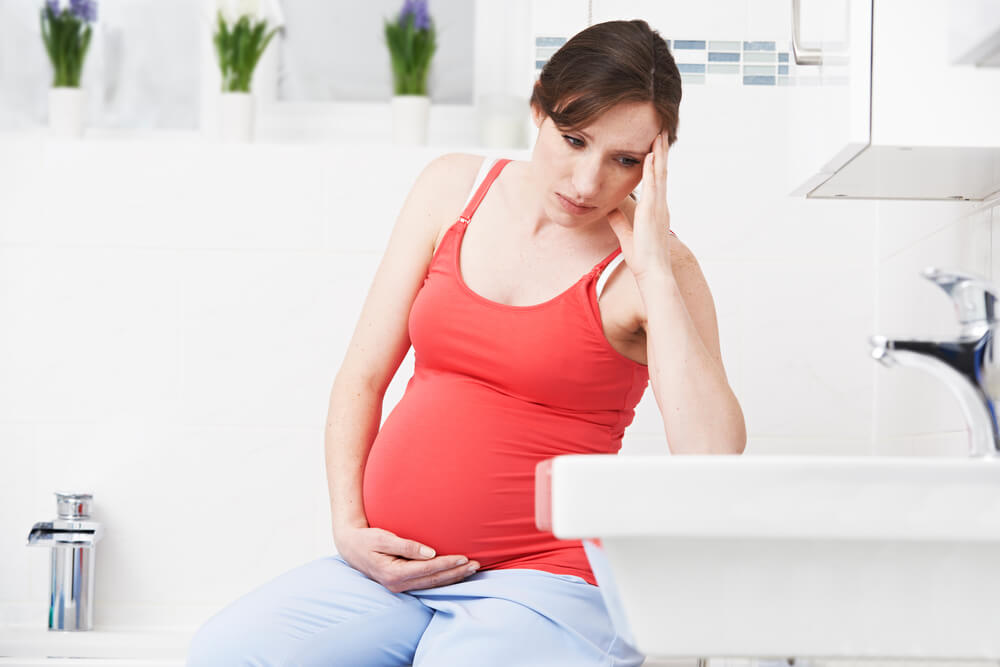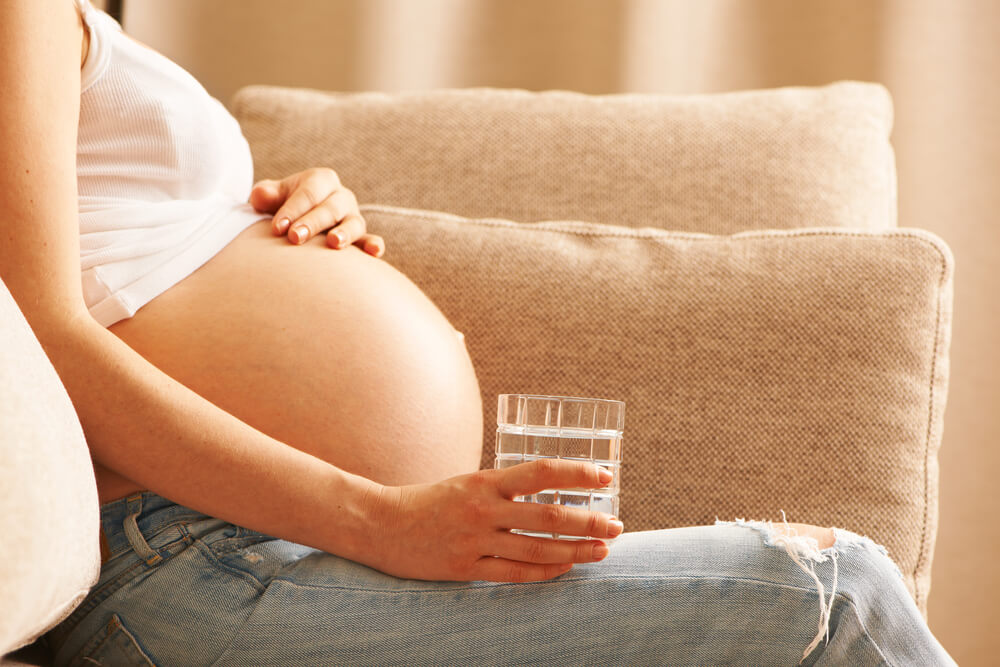What’s Pregnancy Constipation?
Pregnancy is an exciting and joyous time, but it can also bring with it some less-than-pleasant symptoms, including constipation, which is a common complaint among pregnant women. You are constipated if you have less than three bowel movements per week, are straining to move them, or pass hard stools. You may be surprised to hear that one in five expectant mothers suffers from this problem and more than half of all women experience some digestive issues during pregnancy. It is normal for your body to slow down during gestation, so it is not shocking that your digestive system does the same. Doctors who work with pregnant women are aware of constipation and its possible effects on the mother, fetus, and newborn. If you are struggling with pregnancy constipation, feel free to contact us at University Park OBGYN about safe treatment options for both you and your baby.

What Are the Symptoms?
These are the same for all constipated people, not just pregnant women: infrequent bowel movements, hard or lumpy stools, straining when you do go, increased gas or bloating, feelings of incomplete evacuation after defecation, rectal discomfort or pain when sitting, and others. You may have a noticeable slowing down of the movements of your intestines. Your stool might be hard or lumpy to the touch. When you have to go, you might notice that it is feeling larger than usual and also notice swelling, joint pain, and more regular urination. Constipation is usually not a severe issue but may worsen over time. It can progress to more serious conditions, such as hemorrhoids or anal fissures. However, there is no need to worry because all of those problems can be fixed at home or with the help of your healthcare provider.
When Does Constipation Start In Pregnancy?
It usually begins in the first trimester but can happen anytime during pregnancy. The levels of hormones start rising. Many women start having this issue even in the first trimester, while others may not experience it until the fetus is completely evolved. Some mothers are lucky enough to go through the first and second semesters without being constipated at all. However, when the fetus gets big enough, and it starts pressing your gastrointestinal tract, you may expect it to happen.
What Causes Constipation During Pregnancy?
Constipation during pregnancy is often caused by hormonal changes that can slow down peristaltic movement in the bowel. Acute constipation is relatively common during early pregnancy, but it can become chronic if not treated promptly. It is caused by various factors, such as:
- Increase in progesterone levels – Progesterone is a hormone that naturally occurs in your body and is involved in pregnancy. It thickens the uterus, helps with blood flow, and prepares it to carry a fetus. However, this process also slows down your intestines, which makes it hard for your body to digest food, resulting in constipation or diarrhea. It may also make you less likely to feel when you need to go to the bathroom, which means that you end up holding in stool longer than usual and becoming constipated due to infrequent bowel movements.
- Lifestyle – Lack of movement and exercise, lower energy levels, and increased food cravings can all lead to fewer bowel movements. These can all help with pregnancy constipation relief and your overall well-being.
- Prenatal supplements – Many of them contain elevated amounts of iron, which helps your body to produce more blood and thus, supply your baby with oxygen. However, even though this is a good thing, it can also cause constipation, diarrhea, and vomiting.
- Your growing baby – As your baby grows inside the uterus, it can pressure your gastrointestinal tract and surrounding organs, causing them to function less effectively.
How Can I Relieve Constipation Symptoms?
If you are looking for constipation relief during pregnancy, you will be happy to hear that there are many solutions. While some of it may be unavoidable, there are steps that you can take to relieve it:
- Fiber – It is one of the most critical nutrients for passing stool and can benefit your overall health in many ways. It can even help prevent or heal hemorrhoids because you will strain less. Dietary fiber provides bulking material that draws excess moisture and forms a soft stool. Aim for at least 30 grams of fiber per day. Many practical tracking applications can help you with that. Therefore, eat a lot of fibrous foods such as fruits, vegetables, legumes, and whole grains like whole wheat bread and cereal. Try including these in every meal to reach your daily goal.
- Water – When you’re pregnant, it is imperative to stay hydrated. You should drink between 8 and 12 cups of water a day. By increasing your fluid intake, your body forms the amniotic fluid around the fetus. If you go to the bathroom often and your urine is light, you are on the right path. Some fluids even act as natural stool softeners, such as prune juice.
- Exercise – During pregnancy, it is essential to stay active and exercise. A sedentary lifestyle makes it hard for your body to digest food. Exercising not only helps with constipation but also has many other health benefits and reduces stress.
- Probiotics – Probiotic-rich foods and supplements are your best friend for constipation. These include yogurt, sourdough bread, tempeh, cottage cheese, sauerkraut, miso soup, etc. Experts usually recommend getting a high-quality probiotic supplement as well. These will repair and heal your gut microbiome.
- Change your prenatal vitamins – If you are taking a prenatal supplement that has high amounts of iron, you may consider switching it up for another one. It is best to consult your physician and find another brand that may be more suitable for your needs.

What Are the Risks?
Pregnancy constipation relief is not just a matter of convenience; it can be a matter of health. Women who suffer from constipation during pregnancy may be at a higher risk of having their baby delivered prematurely and having a low birth weight infant.
When Should I Contact My Doctor?
Constipation is a common problem during pregnancy, so if you’re suffering from it and you’re not seeing any movement in the toilet after a week or two, it’s time to see your healthcare provider. Constipation can be caused by hormonal changes, pelvic floor issues, and other factors during pregnancy. The good news is that constipation can be treated easily with few modifications. The bad news is that it can’t permanently be cured since its causes are sometimes beyond your control. If you are pregnant and constipated and have never dealt with such an issue, it’s probably best to talk to your doctor about what might be causing it and what treatment options are available.
That said if you’d like to learn more about available treatment options, feel free to reach out to us today.


